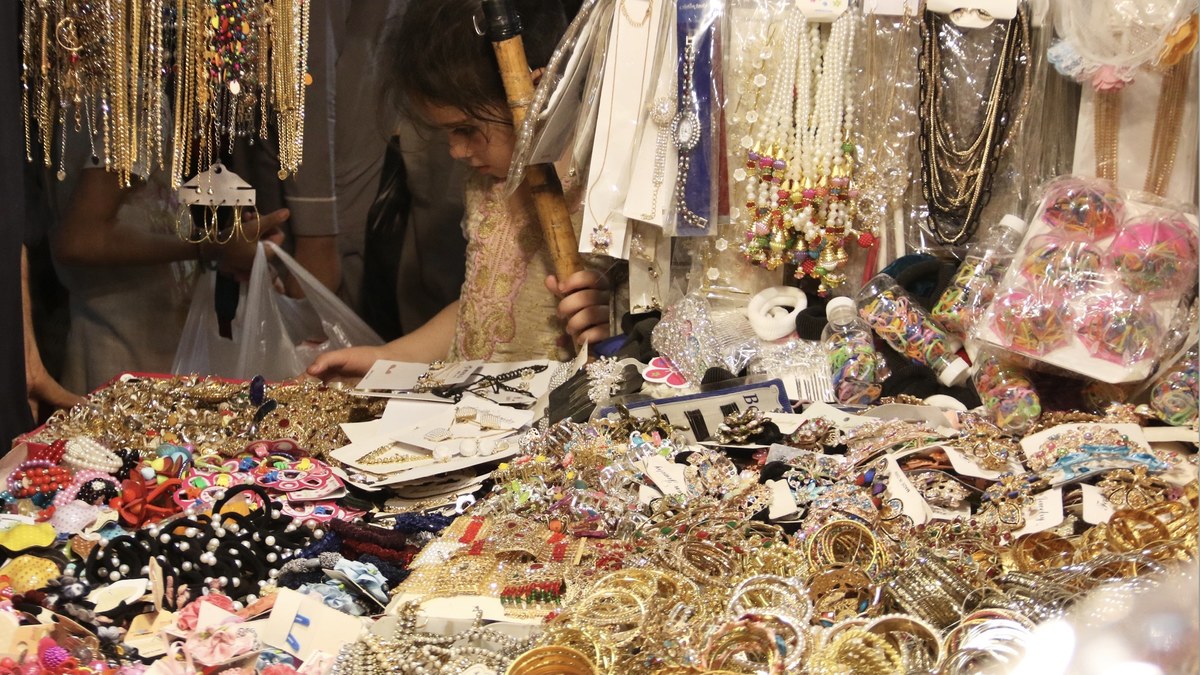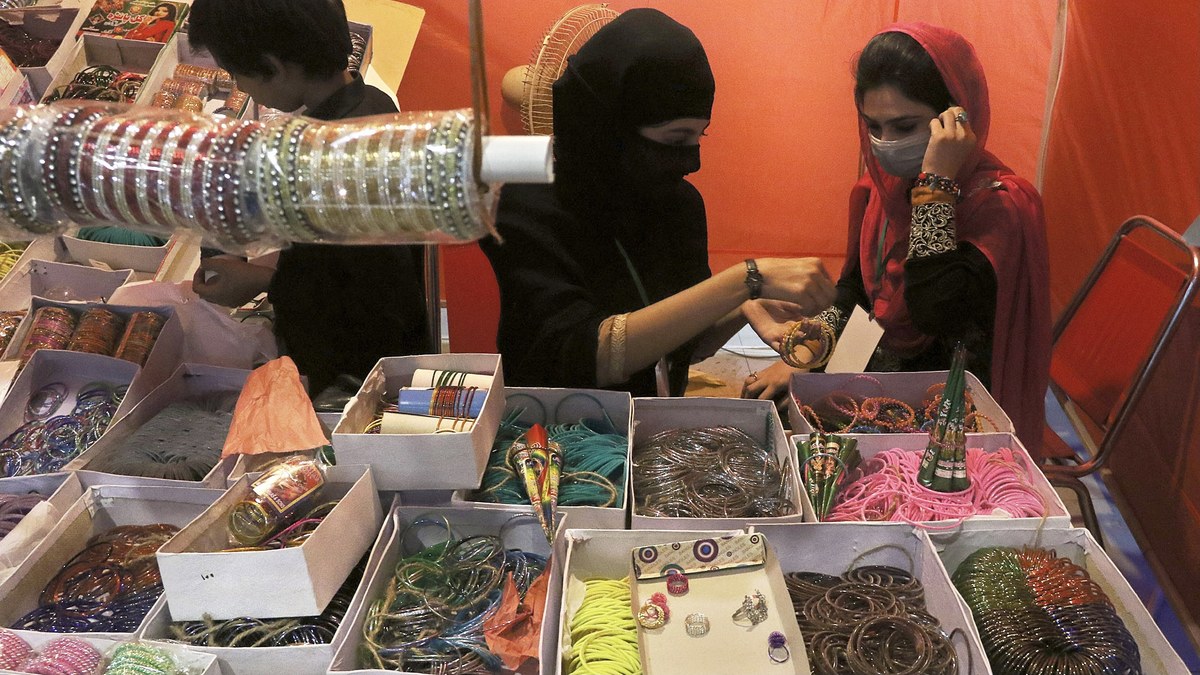PESHAWAR: In Pakistan’s conservative Pashtun societies, where arranged marriages and engagements are the norm, commitments of love involve elaborate family traditions that come alive for Eid — though the tides are ever so slightly changing.
A few days before Eid Al-Fitr, doting groups of women family members from the newly engaged boy’s side traditionally decorate baskets and fill them with gifts for the to-be bride and her family. The tradition is carried out in some form or the other across Pakistan, though in more urban towns, it carries far less of its traditional flavor.
“Barkha is a beautiful tradition practiced in most Pashtun inhabited areas but is especially kept alive by the Yousafzai tribe in Swabi, Mardan, Buner, and Swat districts of Khyber Pakhtunkhwa,” Meraj Humayun Khanm a Khyber Pakhtunkhwa-based educationist, social worker and politician, told Arab News.

A little girl looks at artificial jewelry at an Eid stall in Peshawar, Khyber Pakhtunkhwa, May 6, 2021. (AN photo)
“Women, usually sisters, cousins, and aunties of the engaged boy carry three new unstitched suits — one for each day of Eid — shoes, cosmetics, henna, four to six sets of bangles and jewelry in one traditional basket called shkare,” Humayun said.
The baskets include a day’s meal for the family, including country chicken cooked in cow ghee and bread, as well as a variety of homemade confections.
But even in these deeply conservative towns, where segregation between betrothed couples is common until they marry, things are changing in the age of digital love.
“I am sending her a French perfume and a cellphone, hoping her parents will allow her to get in touch with me,” Naqeeb Khan, a real estate dealer in Peshawar, told Arab News.
Khan is engaged to a girl from his ancestral village in Mardan who he has never seen.
“My younger sister has promised to get me her photos when they take Barkha on Eid day,” he said.
In southern, more “modern” districts of Khyber Pakhtunkhwa, the tradition of Barkha has decreased in practice but it is still very much alive in most rural parts of the province as well as in the tribal districts.

Girls try bangles for their brother’s fiancée at an Eid stall in Peshawar, Khyber Pakhtunkhwa, May 6, 2021. (AN photo)
Anwar Zeb was engaged at the end of last year in his native Buner.
“I prefer letting my fiancée choose her own stuff so I send over money to let her do her own shopping,” Zeb told Arab News.
“My mother is 60 years old and even now, every year my uncles send over her Barkha consisting of the new suits and traditional edibles,” he said.
Another key role of the boy’s family after an engagement — especially the aunties — used to be finding coy ways of somehow connecting the newly engaged couple.
“The aunts would try various rudimentary techniques, making it possible for the two to occasionally meet and understand each other before their wedding,” Pashto history professor Noorul Amin told Arab News.
But modern technology has relieved the aunties of that hectic job, as most couples now use their mobile phones and the Internet to get to know each other before they marry.
The parents too, are changing their minds.
“Allowing a monitored connection between the children is not an issue in my sight,” Naqeeb Khan’s to be mother-in-law told Arab News through an intermediary.
“I think it will help them in understanding each other better and increase their chances of living a happier life ahead,” she said.
Taking Barkha to the girl’s family is an occasion in itself. Women and children dress up in their finest clothes, making a grand entry with singers and dancers.
Traditionally, the women play music with a dhol or drum. They sing songs on the way and inside the girl’s house, sit and chat with the bride, apply henna to her hands, show off her gifts, and have a meal together.
But as with all things, time has changed much.
Anabia Yusufzai from the village of Katlang in Mardan was in a hurry as she downloaded songs onto a flash drive and collected a bluetooth device on her way out, as she left for the home of her uncle’s fiancée with the to-be bride’s Barkha.
“I don’t like the idea of carrying around drums and singing women,” she said. “It’s a lot easier just using a gadget.”
















